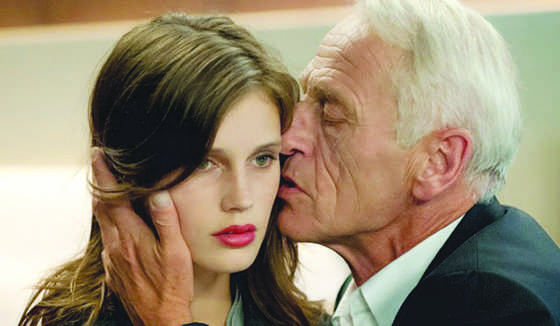
Films often portray young people as powerless, especially when pitted against their parents or other older figures. This depiction is not true for 17-year-old Isabelle in “Young and Beautiful.” Marine Vacth plays the lead in Francois Ozon’s latest project with hypnotic disaffection that belies the crippling power that her youth, natural beauty and mature intelligence wield over everyone she encounters. Unfortunately, while Vacth and her character are undeniably magnetic, the rest of the film fails to match their charming qualities.
“Young and Beautiful” follows the shy and studious Isabelle through a year of her teenage life, as dictated by the four seasons. In this period of time, the audience sees Isabelle’s sexual journey through adolescence, from her first sexual encounters through her stint as a prostitute, and on to her eventual maturation and self-revelation.
It is a coming-of-age story told from the perspective of a young girl exploring her body and using it as a weapon against both the johns that employ her and a family who does not know how to help her.
Isabelle’s mother is played by Géraldine Pailhas, who gives a believable and affecting performance. She and Vacth share a sense of bravery, lending a strong sense of honesty to the film while allowing viewers to understand relationships and dynamics that would otherwise be hard to relate to. Vacth and Pailhas are the real emotional centers of the film, but supporting characters are strong across the board.
“Young and Beautiful” falters in the four-season narrative structure. While Isabelle moves through the year with no shortage of sex and nudity, the film loses steam and direction soon after her mother and family discover that she is a prostitute — although it is fascinating to watch the family dynamic after the bomb is dropped.
Furthermore, it is a mystery why Isabelle takes up prostitution in the first place. Her family is upper middle-class and she herself states that she did not need the extra money from prostituting. This apparently pointless life change is problematic because Isabelle’s shady career is the film’s focal point.
A certain amount of uncertainty is fine — necessary, even — in a young girl’s coming-of-age story, but it is never made clear why she needs to diligently collect and stash money. Similarly, the film ends abruptly because the conclusion does not distinguish itself from other events in the narrative.
Ozon’s film represents an interesting cross section of familiarity and innovation. On one hand, it is refreshing to see the adolescent sexual experience through the eyes of a young girl, especially one with so much power and intelligence. On the other hand, this coming-of-age story employs tropes and visuals similar to other films in its genre, specifically Isabelle and her friend Claire’s dalliances with the boys in their school.
The narrative might not be entirely polished, but the performances and Ozon’s moody and artful direction make “Young and Beautiful” a worthwhile watch.
A version of this article appeared in the Wednesday, April 23 print edition. Ife Olujobi is film editor. Email her at [email protected].






















































































































































